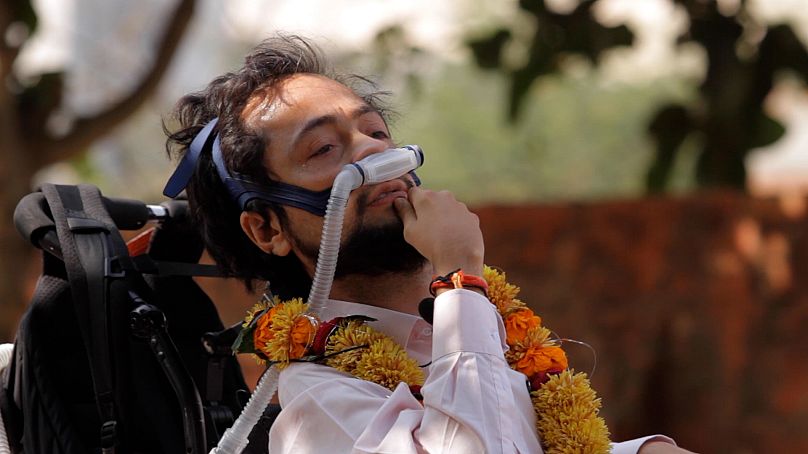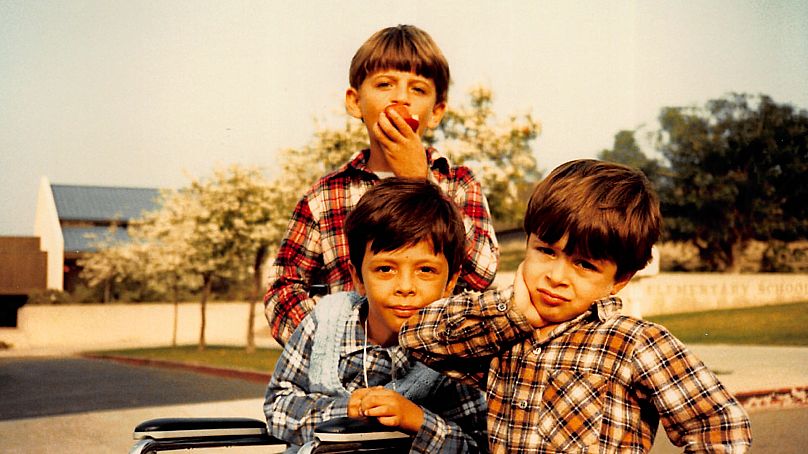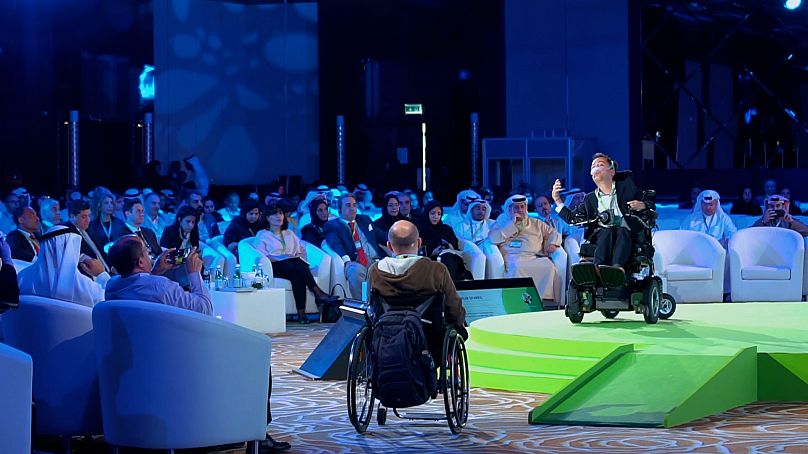Dr. Victor Pineda wants to reimagine a world where everyone belongs. His Foundation has partnered with cities, creating a global campaign to improve accessibility.
The Dialogue sits down with inspirational people from across the globe with links to the Middle East and North Africa. Guy Shone explores what drives these extraordinary individuals.
Dr. Victor Pineda wants the world, businesses, in particular, to realise they're missing a trick. A huge trick. "We're looking at a $2 Trillion economic loss by excluding people with disabilities from the workforce," he tells The Dialogue.
"Leaving out 15% of the population globally, that's over a billion people that live with a disability, just doesn't make any economic sense," he says. "You're not going to prosper by missing out on that talent and those contributions."
His Foundation's goal is to ensure no one is left out by spreading the message of 'radical inclusion.' "We can have a huge impact on the way that we reimagine the world," Victor enthuses, "and build a world where everybody belongs."
"The [Covid-19] pandemic really changed the perspective. Who's included, who's confined, who's excluded… there's [sic] been people asking for remote work for decades, and the corporate world kept saying it's impossible," Victor says. "And everybody switched over in the course of a week."
Working from home has opened up new avenues for many people with disabilities, whether that's someone who struggled to get into an office due to mobility issues or struggling with anxiety.
Victor is a prime example of the talent that might have been missed had his parents not intervened. He stopped walking as a young child due to a rare condition that weakened his muscles. Schools in his birth country, Venezuela, turned him away, seeing him as a "liability".
"The challenge was just that there's an old way of thinking that is confronting to a world that wasn't designed for me, that wasn't built for me. It created a lot of obstacles," he explains." [T]he legacy infrastructure that does not take into account human difference, but the sort of the mindset that people with significant disabilities or physical challenges, won't be able to form a family, won't be able to really be part of society."
As a result, his family moved to California, and Victor has been smashing down barriers ever since. He flew through the education system, gaining a PhD with distinction. He's since directed films, advised US President Barack Obama, launched the World Enabled Global Initiative, and through his Foundation, worked with countless bodies, including the UN.
One of his recent forays is a new 'Disability Justice' series in conjunction with the Qatar Foundation's media organisation, Doha Debates. The series explores the varying perspectives of disabled people from different countries worldwide, examining what can be done to break down barriers.
While Victor believes nations are getting many things right, he is clear about what could be better. "We continue to perpetuate ideas of charity, of pity, of kind of… 'let me figure this out for you,'" he says. "Even in a lot of countries that seem to mean well, [they] continue to have this idea of segregated special education or segregated employment opportunities."
"[W]e look at labels as a way to protect or coddle or in a sense isolate," he says. "And I think the opportunity is to look at the contrary, which is…considering your child's particular aptitudes and their interests."
Victor insists those labels must be changed. "We really want an opportunity to feel like the world can be redesigned in a way that unlocks everybody's potential. Those design interventions aren't rocket science."
To show this is possible, the Victor Pineda Foundation has partnered with over 30 cities worldwide to create a global campaign on accessibility. The idea is to "transform 100 cities to be more inclusive, accessible and resilient by 2030," he says.
And it goes further, he explains, saying it's about how individuals can effectuate change on a daily basis. "We're all faced with limitations, but there's an opportunity to have hope, courage and ultimately love the people around you to create those conditions for you to step into the place where you feel like you can do anything."
Victor's goal is simple, he wants to create a world where individuals are judged based on their unique talents and contributions and not on the things they can't do.















